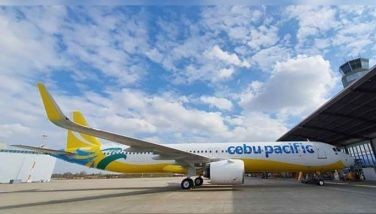The Enrile-Belmonte initiative on the restrictive economic provisions of the Constitution

The two legislative leaders of the country – Senate President Juan Ponce Enrile and Speaker of the House Feliciano Belmonte Jr. – agreed to place on the legislative agenda this year the amendment of restrictive economic provisions of the Constitution. If this enterprise succeeds, it will be a momentous achievement for the nation.
President Noynoy Aquino was not part of this legislative move. The Senate and House leaders acknowledged that their decision was on the basis of their own beliefs and assessments concerning the urgent need of the nation to deal with this issue. Hopefully, the president will give this move his political backing because it is a move of great importance for the nation’s progress.
I once called the restrictive economic provisions as the “original sin” of our economic development policies. They constitute the main reason for the country’s limited access to foreign direct investment capital that the country has sorely needed since independence.
These policies not only served to limit the inflow of foreign capital into the country. They also set the tone for the nurturing of a narrow economic nationalism as a dominant component and thinking about practical economic policies in the country for years. The end result is that the growth of output and of productivity in the country had also suffered immensely.
“Only the restrictive economic provisions to be subject of amendment.” The main feature of the Enrile-Belmonte initiative on constitutional amendment is to focus only on reforming of the restrictive economic provisions of the Philippine constitution. Thus, they will not entertain the inclusion of political amendments in order to remain on the main agenda.
The restrictive economic provisions cover only three areas of the economy that restricts the role of foreign direct investments: the ownership of land, the operation and ownership of public utilities, and the exploitation of natural resources. The reach of these restrictions have permeated into many sectors of the economy.
The restrictions were introduced in the form of limitation in the ownership of corporations by allowing a 60-40 equity proportions for Filipino and foreign capital, respectively. Thus, foreign capital was restricted to a maximum of 40 percent of the total ownership of corporations in these areas.
The cap on foreign capital ownership at 40 percent in corporations in these critical sectors has led to a high cost economy. With this provision, the economy suffered from undercapitalization of the country’s public utilities. A result of undercapitalization was the high cost of public utility services, coupled with the lower quality of service. Eventually, this translated into high production costs in industry.
The reform of restrictive economic provisions in the Constitution has been very slow in our country. For as long as these restrictions are in place, the nation will be frustrated by the lack of capital to finance the country’s needed investments. Then, it would be tragic to have our neighbors continue at their high economic pace while we go on, saddled by our inaction, at our usual slow pace. Then, we would indeed be left far behind our neighbors.
This is why the Enrile-Belmonte initiative on the reform of the restrictive provisions of the constitution should not only be welcome but given the highest level of support by the nation.
“Greatly missed: A presidential initiative on this all important issue.” Silence on the issue of restrictive economic provisions is the hallmark of the President Noynoy Aquino’s position in this matter. To say the least, it is very disappointing that he has not dealt with these economic issues so far, It would be a good idea if the president joins into the fray by lending political power and prestige to create a bandwagon for the adoption of the reforms.
In short, the President should lead it, and lead it correctly. By giving an amendment of these restrictions a strong and powerful direction, he can seize a momentous occasion to advance his economic program and become a truly successful leader of our country.
The surest way toward the success of his presidency is to bring in a large inflow of foreign direct investments into the country. This magnitude of this flow should be in multiples of what we have been accustomed to receiving. Our neighbors Thailand, Singapore, Indonesia and Vietnam have achieved high levels of influx of foreign direct investments that make our achievement in this regard puny by comparison.
The increase in investment inflows will help to raise the confidence of domestic business. Domestic interests might be wary at first that allowing greater foreign investment inflows might increase the competition that they face. However, rising investments in the economy will mean an expanded market promising higher demand for goods.
If properly harnessed, foreign capital can be used to reduce existing bottlenecks that the economy faces. These investments lead to an expansion of domestic commerce. Greater trade among domestic industries will result and help to bring down production costs as well. Domestic competition will result from the presence of many more economic players in the economy, fueling further economic efficiency.
An increase in the inflow of foreign capital into the country will raise the country’s international profile as a successful economy. That often also leads to more investments. This increases the possibility that the country will join the league of high growth countries in the region and the world as a consequence.
“Economic restrictions are many: Beyond the 1937 issues are additions in the 1987 constitution.” The restrictive economic provisions in the constitution are no longer confined to the three areas specified in the 1935 Constitution. Most notable among new restrictions added in the 1987 Constitution are those related to the ownership of media and of educational institutions.
In truth, the Philippine constitution is unique among all constitutions in that it contains specific limits on the participation of foreign direct investments in specialized sectors of the economy. No state constitution that I have referred to have dealt with such detail on specific legislation concerning economic policy.
Visit this site for more information, feedback and commentary: http://econ.upd.edu.ph/gpsicat/
- Latest
- Trending

























